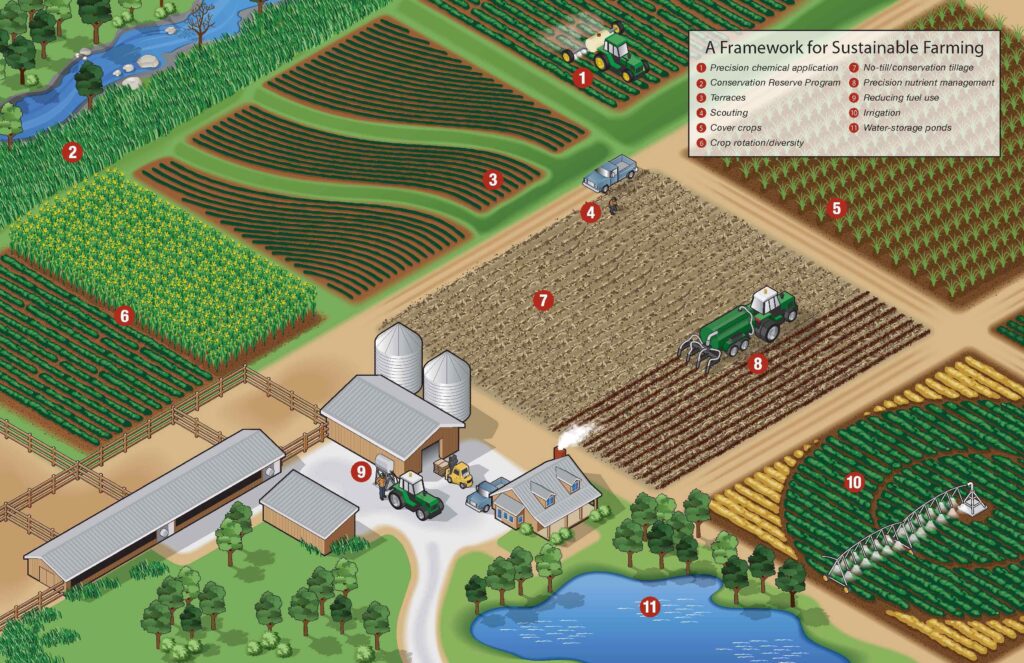How Sustainable Farming Can Shape the Future
As the world grapples with the pressing challenges of climate change, food insecurity, and environmental degradation, the role of sustainable farming practices has never been more crucial. Sustainable farming offers a holistic approach to agriculture that not only produces abundant, nutritious food but also safeguards the health of our planet for generations to come.
Restoring the Balance of Nature
Sustainable farming emphasizes working in harmony with natural ecosystems, rather than trying to dominate and control them. This involves adopting techniques such as:
Crop rotation: Rotating different crops in the same field helps maintain soil fertility, reduce pests and diseases, and prevent soil erosion.
Cover cropping: Planting cover crops between cash crops helps enrich the soil, suppress weeds, and prevent runoff.
Integrated pest management: Utilizing a combination of biological, cultural, mechanical, and physical controls to manage pests, rather than relying solely on synthetic pesticides.
By mimicking natural processes, sustainable farmers can reduce their reliance on fossil fuel-based inputs, minimize pollution, and promote biodiversity. This not only benefits the environment but also makes farming systems more resilient in the face of climate change.
Building Soil Health
Healthy, fertile soil is the foundation of sustainable farming. Sustainable practices such as no-till or minimal tillage, the incorporation of organic matter, and the use of compost and manure, all work to improve soil structure, nutrient content, and water-holding capacity.
When soil health is prioritized, it becomes a powerful carbon sink, sequestering atmospheric carbon and helping to mitigate climate change. Additionally, nutrient-rich soils produce more nutrient-dense foods, contributing to improved human health and well-being.
Fostering Local Food Systems
Sustainable farming often involves the development of localized food systems, where food is grown, processed, and consumed within a smaller geographic region. This approach shortens the supply chain, reduces the environmental impact of transportation, and supports the local economy.
By building strong connections between farmers, consumers, and the community, sustainable food systems foster a deeper understanding and appreciation for the origins of our food. This, in turn, encourages consumers to make more informed choices and support local, sustainable producers.
Securing a Resilient Future
As the world faces an uncertain future marked by climate change, water scarcity, and population growth, sustainable farming practices offer a pathway to a more resilient and equitable food system. By working in harmony with nature, building soil health, and fostering local food networks, sustainable agriculture can help ensure that we can continue to feed a growing global population while safeguarding the health of our planet.
The transition to sustainable farming may not be easy, but the benefits it offers – from environmental preservation to improved human health and economic stability – make it a crucial investment in our collective future. As we move forward, it is time to embrace the transformative power of sustainable agriculture and shape a more sustainable, resilient, and equitable food system for all.

